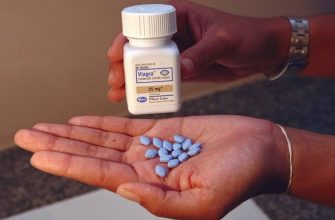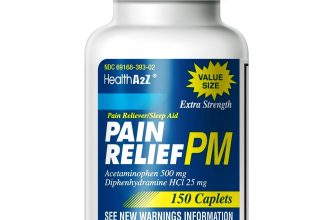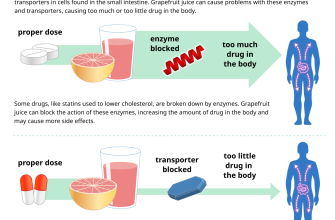Don’t use expired amoxicillin. Its effectiveness decreases significantly after the expiration date, meaning it may not properly treat your infection. This could lead to prolonged illness and potential complications.
The potency of amoxicillin, its ability to kill bacteria, diminishes over time. Studies show a gradual reduction in antibiotic concentration after the expiration date printed on the packaging. This decrease varies depending on storage conditions; heat and humidity accelerate the degradation process. Improperly stored amoxicillin loses its effectiveness faster.
Using expired medication might not resolve your infection, potentially allowing the bacteria to multiply and become resistant to antibiotics. This resistance makes future treatments more challenging and less effective. Always dispose of expired medications properly, following local guidelines for safe pharmaceutical waste disposal. Consult your pharmacist or doctor for the best way to discard your expired amoxicillin.
In short: Discard expired amoxicillin and obtain a new prescription from your doctor. Your health and effective treatment are paramount. Ignoring this advice could have negative consequences for your health.
- What Happens if You Take Expired Amoxicillin?
- Potential Risks of Using Expired Amoxicillin
- Potential Risks of Using Expired Amoxicillin
- What to Do with Expired Amoxicillin
- Safe Disposal Methods
- What NOT to Do
- Important Considerations
- When to Consult a Doctor After Taking Expired Amoxicillin
- Signs Requiring Medical Attention
What Happens if You Take Expired Amoxicillin?
Don’t take expired amoxicillin. Its effectiveness decreases over time. You might not get the full benefit, meaning your infection may not clear up. This could lead to prolonged illness and potential complications.
Potential Risks of Using Expired Amoxicillin
Expired amoxicillin may contain reduced levels of the active ingredient. Additionally, breakdown products might have formed, potentially causing unexpected side effects, such as stomach upset or allergic reactions. These reactions can range from mild to severe. Always consult your doctor or pharmacist before using any medication, particularly if it’s past its expiration date. They can assess your situation and recommend appropriate treatment.
Discard expired amoxicillin properly. Check local guidelines on safe medication disposal. Never flush medications down the toilet unless specifically instructed.
Potential Risks of Using Expired Amoxicillin
Don’t use expired amoxicillin. Its potency decreases over time, meaning the medication may not effectively treat your infection. This increases the risk of the infection worsening or becoming resistant to antibiotics.
Reduced effectiveness can lead to prolonged illness and increased discomfort. Your symptoms might persist longer than expected, requiring a longer recovery period.
Furthermore, taking ineffective medication can contribute to antibiotic resistance. Bacteria adapt and develop resistance mechanisms, making it harder to treat infections in the future, both for you and others.
Expired amoxicillin may also contain degraded chemicals that can cause adverse reactions. These reactions could range from mild digestive upset to more serious allergic responses. Always consult a doctor if you experience any unusual symptoms after taking medication.
Finally, always discard expired medications properly according to your local guidelines. This prevents environmental contamination and ensures safe disposal of potentially harmful substances.
What to Do with Expired Amoxicillin
Never take expired amoxicillin. Its effectiveness decreases over time, and taking it could be ineffective or even harmful. Dispose of it properly to protect yourself and the environment.
Safe Disposal Methods
- Check your local pharmacy: Many pharmacies offer drug take-back programs. They provide safe containers and procedures for disposing of unwanted or expired medications. Contact your local pharmacy to see if they participate.
- Use a medication disposal kit: These kits are available at many pharmacies and online. They typically involve mixing the medication with an inert substance, making it unusable.
- Follow your local government guidelines: Your municipality may have specific instructions on how to dispose of medications. Check their website or contact your waste management department for details. This may include mixing the medication with kitty litter or coffee grounds before placing it in a sealed container.
What NOT to Do
- Do not flush amoxicillin down the toilet: This can contaminate water sources.
- Do not throw amoxicillin in the trash: It could be accessible to children or pets. This also poses an environmental risk.
- Do not save it for future use: As mentioned, expired amoxicillin is ineffective and potentially dangerous.
Important Considerations
Always follow the specific disposal instructions provided by your local pharmacy or government. If you have a large quantity of expired amoxicillin, contact your local authorities for advice on safe and proper disposal.
When to Consult a Doctor After Taking Expired Amoxicillin
Seek immediate medical attention if you experience any severe allergic reaction, such as difficulty breathing, swelling of your face, lips, or tongue, or hives after taking expired amoxicillin. These symptoms require prompt treatment.
Signs Requiring Medical Attention
Contact your doctor if you notice any worsening of your existing symptoms, or if new symptoms develop after taking the expired medication. This could include persistent or high fever, severe diarrhea, or unusual abdominal pain. Don’t hesitate; your health is paramount.
Also, if your symptoms don’t improve within a few days, or even if they seem to get worse, schedule a doctor’s appointment. Expired amoxicillin might not be effective, potentially prolonging your illness or allowing the infection to spread.
Remember, this information doesn’t replace professional medical advice. Always consult a doctor for personalized guidance regarding your health concerns.







